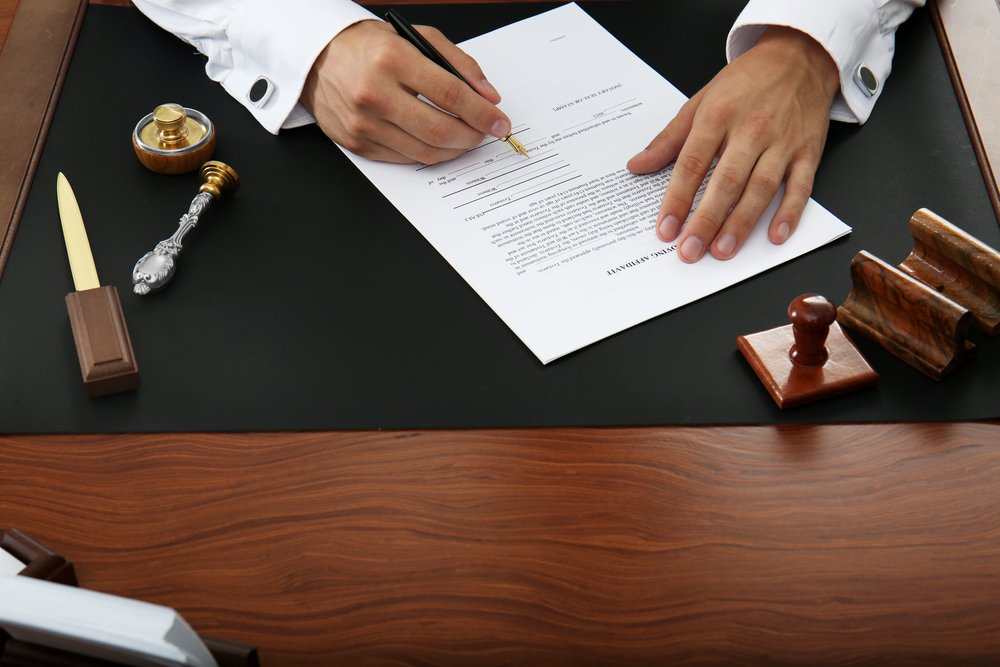
Affidavits are an essential tool for the delivery of evidence in Courts, Tribunals and regulatory bodies within Australia. Legislation governing the form and content of affidavits varies in each State or Territory of Australia. In Queensland affidavits are governed by, inter alia:
- Oaths Act 1867;
- Uniform Civil Procedure Rules 1999 (“the UCPR”); and
- Evidence Act 1977.
1. What is an affidavit?
- An affidavit is a written, signed statement of a person setting out facts that are confined to that person’s knowledge. It is primarily used for giving evidence in court proceedings.
- Affidavits can:
-
- give a witness’ version of events;
- prove the identity of a person convicted;
- prove the incorporation or registration of a company;
- prove that particular documents are books of account;
- verify a copy of a document,
and the list goes on!
-
- Subject to direction by the Court evidence in a proceeding may be given by way of affidavit pursuant to rule 390 of the UCPR.
2. Why should I make an affidavit?
Affidavits are a cost effective and efficient use of resources to bring evidence before a Court. Court resources are limited in nature and any document or process which can assist the court in the efficient administration of justice is a good thing for all parties involved. They may even get your matter off on a good footing with the judge.
In Queensland, unless provided for otherwise, an affidavit must be confined to the evidence the signatory of the affidavit could give if giving evidence orally save for applications seeking relief other than final relief.
3. How do I write an affidavit?
Affidavits must be in the approved form (currently in Queensland civil proceedings UCPR Form 46) and must, inter alia:
- be written in first person;
- be confined to your own personal knowledge;
- be divided into paragraphs numbered consecutively and each paragraph confined to one set of facts;
- have each page of the affidavit be numbered; and
- be signed by the witness and deponent on each page of the affidavit.
An affidavit, unless the court orders otherwise, may be filed despite an irregularity in form, including a failure to use the approved form.
If possible, affidavits should be concisely written and avoid the inclusion of irrelevant, scandalous, frivolous or vexatious matters.
4. What is an exhibit to an affidavit?
An exhibit is a document to be used with and mentioned in an affidavit. For example, if in your affidavit you refer to an email you sent/received, then you would exhibit the email as proof of the same.
Exhibits to affidavits must comply with rule 435 of the UCPR.
5. Do I have to swear/affirm my affidavit?
Affidavits are sworn, or in the alternative affirmed by the deponent, and witnessed by a person of the type described in section 12 of the Oaths Act 1867.
A deponent must ensure that the affidavit they are signing includes a valid jurat (i.e. a statement outlining when, where and before whom a document was witnessed).
6. Can I alter my affidavit after it is sworn or affirmed?
An affidavit may be filed with alternations only if the alterations have been initialled by the signatory and initialled by the witness for the affidavit.
However, once an affidavit has been signed and witnessed in accordance with the Oaths Act 1867 no further alterations may be made to the document regardless of whether it is an electronic or physical document.
If you are worried an affidavit contains incorrect information you should seek legal advice from experienced litigation lawyers such as Rouse Lawyers as who have the particular expertise required to assist clients in court proceedings.
Rouse Lawyers provides monthly guides and tips for those considering or currently taking disputes to court. Sign up to our newsletter at the bottom of this page to receive these straight to your email inbox.
Disclaimer
The information contained on this website is for general guidance on matters of interest only. The application and impact of laws can vary widely based on the specific facts involved.
Accordingly, the information on this site is provided with the understanding that the authors and publishers are not providing legal advice. As such, it should not be used as a substitute for consultation with professional legal advisers. Before making any decision or taking any action, you should consult with a professional lawyer from Rouse Lawyers.
Liability Limited by a scheme approved under Professional Standards Legislation.

